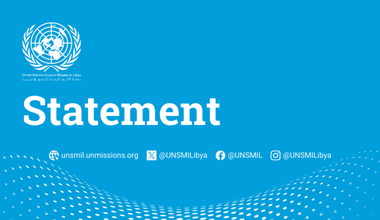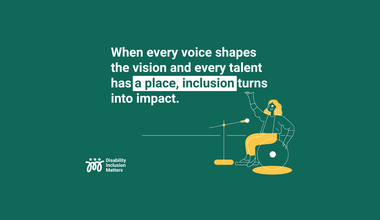SRSG Tarek Mitri's address at the “Truth and Reconciliation in Libya : the Way Forward" conference
Tripoli, 12 December 2012 (Translated from Arabic)
Dear Friends,
You gather today to discuss very important and sensitive matters, raising political, legal, ethical, and cultural issues that are interconnected. None of them can take precedence over the other and they cannot be artificially disassociated.
The duality of the title of your seminar "Truth and Reconciliation" refers to this connection. While seeking the truth is a cognitive and ethical matter in the first place, it calls for urgent legal efforts and unequivocal political commitment.
The title also alludes to the central idea around which your discussions will be revolving, i.e. reconciliation does not mean ignoring or forgetting past crimes. It means understanding their motives, driving force and destructive implications. It means putting them in their right perspective without downplaying their seriousness, but also without distortion or generalization.
Knowledge of truth is the shortest path to reconciliation. At the same time, it is the condition for its sustainability. It is the entry way to healing the injured memories, since wounds do not heal by forgetting. Loss of memory or forcing its loss, hiding and obliterating facts could contribute, but superficially and for a limited time, to turning the page of the past and putting an end once and for all to its pressure. However, soon enough, memory will play its dangerous game and come back when we least expect it to revive feelings we thought we had forgotten. Memory often comes back in a selective manner and is marred by exaggeration and used for political purposes to capitalize on or to justify policies.
But truth and reconciliation alone are not enough. For them to be mutually-reinforcing and to be effective, justice must be achieved. Seeking the truth should not be solely for the purpose of satisfying the need to know and to heal, and reconciliation should not be an amnesty for all past crimes that does not distinguish between actions committed or do justice to victims.
Dear friends,
I had the opportunity, through my many visits and meetings, to notice an increasing interest of the authorities in the new, free and democratic Libya, in national reconciliation as an incubator of many reconciliation processes, some of which are in progress, while the others are faltering.
Reconciliation is necessary for establishing security and launching human development in all its dimensions. It is a forward looking and long-term process. It is not just mediation, temporary fixes for conflicts, easing tensions or extinguishing some fires. I had the chance to hear from some Libyan civil society activists the emphasis they put on the need to launch this process without delay as they believe that reconciliation removes obstacles from the path of state-building and restoring social peace and unity of the Libyans based on shared values. This process, if managed well without haste or partisanship, can set the broad lines of a new social contract that would be the first cornerstone of the new constitution.
Obviously, the call for truth seeking, ensuring that justice is done and moving down the path of reconciliation is not a call for general amnesty for past crimes. It does not call for moral equality between the aggressor and the victim. Rather, it is a call for combatting revenge and collective punishment tendencies that do not ensure the accountability of individuals for their acts, but punishes them for acts of others with whom they happen to share family, tribal, local or cultural ties and affiliations.
Finally, reconciliation is a call to be mindful of risks of inventing enmities and claiming they are ancient, which would lead the entire society to endless conflicts and hinder participation and inclusiveness according to democratic rules. Therefore, continuously reminding of the importance of reconciliation and contributing to providing favourable conditions for it are at the heart of our duties as a United Nations Mission tasked with providing support to Libya in its democratic transition. It should not be overshadowed by other priorities that seem more pressing and are indeed pressing, such as ensuring security for all citizens and building state authorities that look after their affairs and protect their rights.
We also have to provide what we can to encourage dialogue and broaden its scope to include not only political stakeholders, but also the civil society, including organizations, associations, public figures, intellectuals, academics and media. Finally, we have to help our Libyan friends to interact with experiences of other countries that have been through similar historical circumstances and benefit from the solutions reached through several attempts for truth seeking, reconciliation and transitional justice processes.
This conference, which I hope will not be a passing event, but rather a defining moment in a continuous path, will mark our mutual responsibility. I am confident that it will be an occasion for in-depth consideration of a range of ideas raised within the Libyan public opinion, including on the laws that should be amended or initiated and the institutions that should be established. I am hopeful that your deliberations, especially regarding the sensitive and painful issues that are of concern to many people, such as the issue of the missing persons, will result in practical recommendations to be presented to the government, the General National Congress, Civil Society and international organizations with candor and followed up with perseverance.
I wish you success in your deliberations look forward to their fruitful results.
 United Nations Peacekeeping
United Nations Peacekeeping UN
UN









